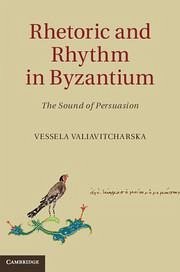
Rhetoric and Rhythm in Byzantium
The Sound of Persuasion

PAYBACK Punkte
57 °P sammeln!
A study of the presence and effects of rhythm in Byzantine rhetoric, its musical qualities, and its function in argumentation.

The Sound of Persuasion

Rechnungen
Bestellstatus
Retourenschein
Storno